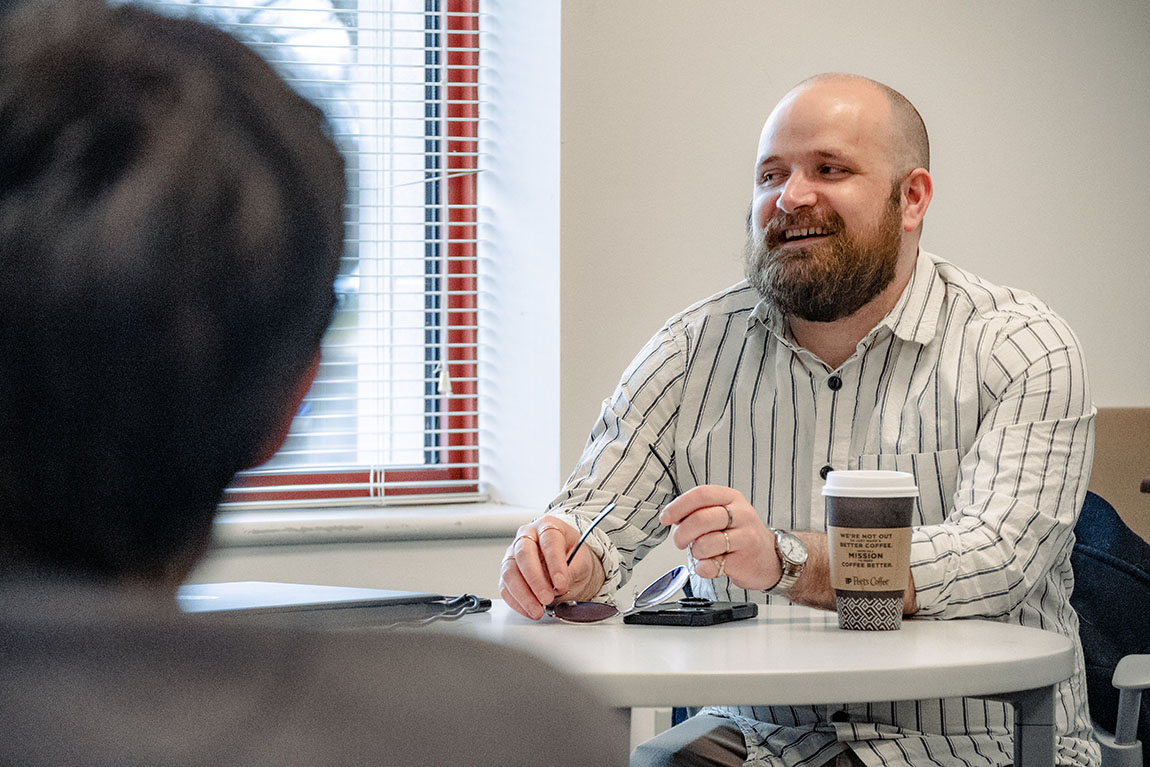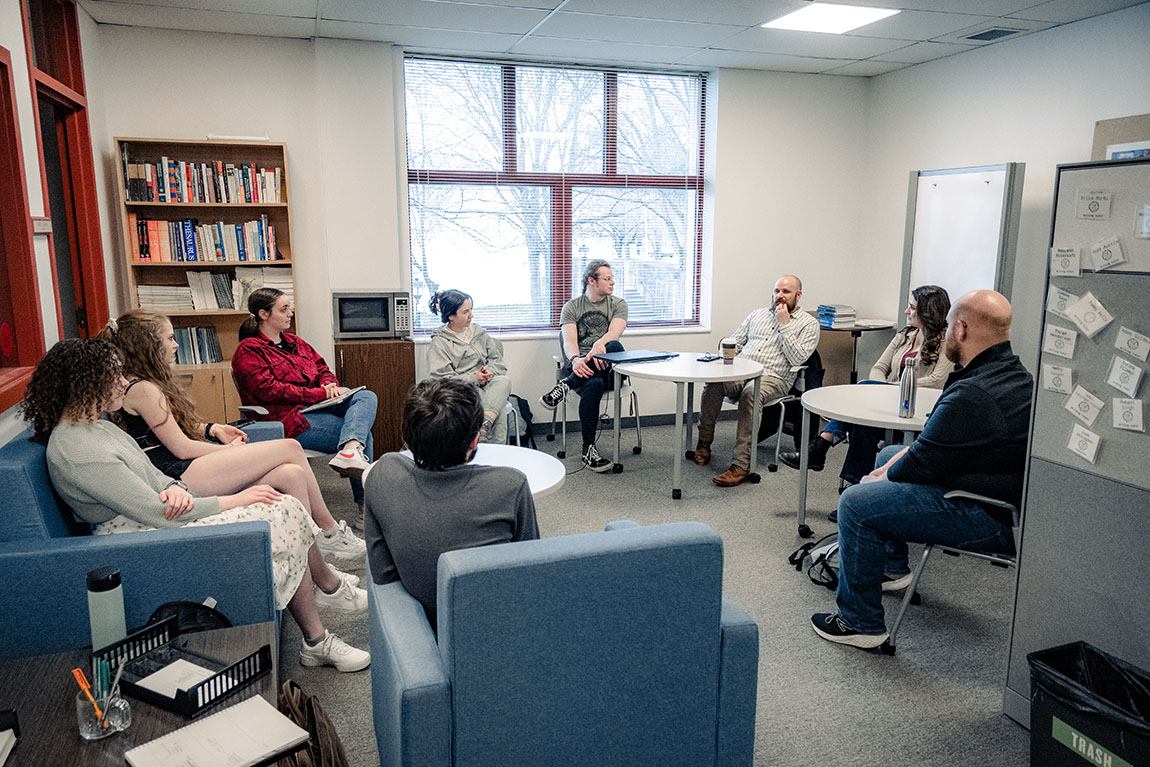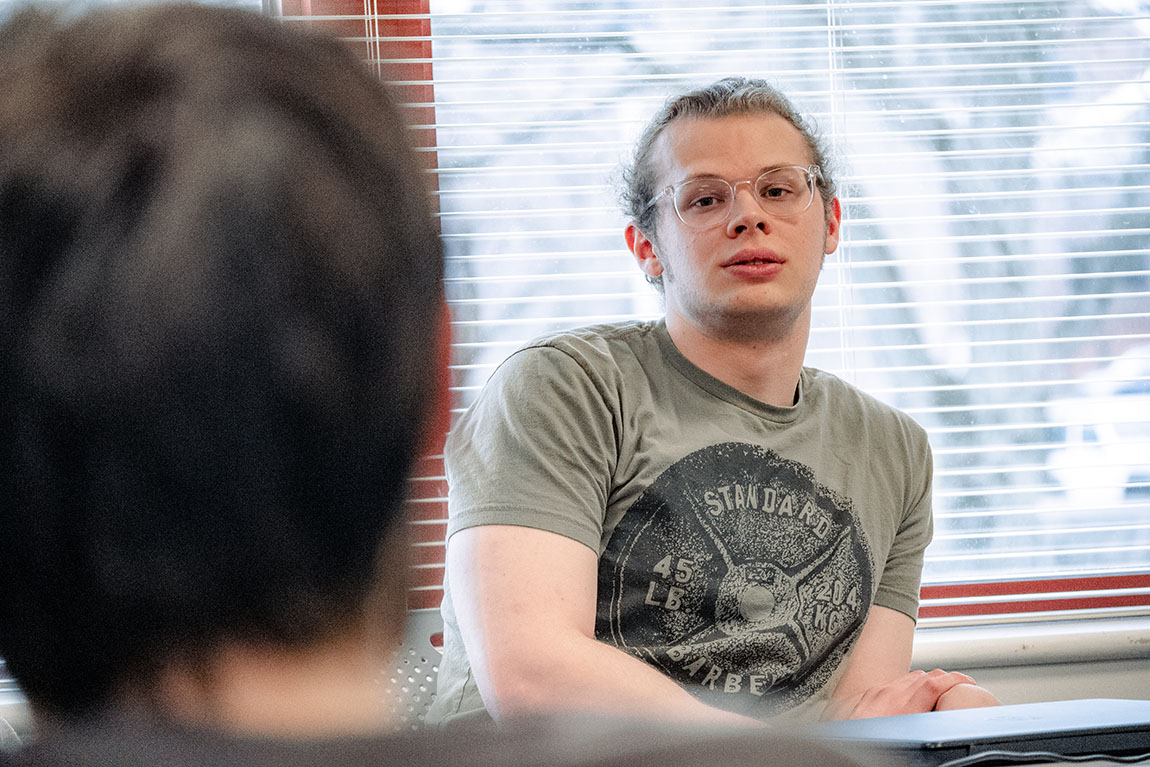The Muhlenberg Response to ChatGPT and Other Artificial Intelligence Tools
Faculty and staff gathered this semester to discuss the possibilities and limitations of this rapidly advancing technology and the ways in which good pedagogy can counter its supposed threats.By: Meghan Kita Tuesday, April 18, 2023 09:55 AM
 Assistant Professor of English and Writing Program Director Joshua Barsczewski in conversation with the College's writing tutors in the Writing Center. Photos by Joe Romano '23
Assistant Professor of English and Writing Program Director Joshua Barsczewski in conversation with the College's writing tutors in the Writing Center. Photos by Joe Romano '23You’ve probably seen the breathless headlines about how advances in artificial intelligence (such as ChatGPT) will make it easier for students to cheat and harder for their teachers to catch them. Assistant Professor of English and Writing Program Director Joshua Barsczewski isn’t worried — yet.
“Those of us who’ve spent time using it are less concerned, for now, because there are pretty severe limitations on what it can do,” he says. “When you ask it a question, it looks through the archives of the internet up to 2021 and it looks at how other people have talked about that topic. From there, it produces convincing-sounding prose … Someone who has content-level expertise should be able to read something this produces and know that this is a superficial analysis, that it’s the same thing people have been saying for decades.”
Barsczewski organized a workshop about the tools and writing pedagogy for the Muhlenberg community earlier this semester. There, he and other faculty and staff discussed strategies for preventing this type of plagiarism and ideas for how to use these emerging tools in the classroom.

A gathering of student writing tutors
For example, only certain kinds of assignment prompts could be convincingly addressed by AI. Assignments that ask students to reflect on classroom discussions, or to work with obscure or recent texts, or to revise earlier assignments they’d written in response to in-depth feedback from faculty would all be outside the scope of AI’s current functionality.
One possible way to use this technology in the classroom, Barsczewski says, is to input a prompt into the AI tool and discuss with the students what works well (and what doesn’t) in the response it produces. Generally, AI falls short in deep thinking but excels in clear writing, so the output might be used as an example of how to structure a paragraph or an essay.
Because the College isn’t sure how faculty will choose to use these tools in the classroom, says Dean of Academic Life Gretchen Gotthard, it’s holding off on creating an official policy surrounding its use. More workshops will likely be held to allow faculty to continue discussing these tools. The Writing Center’s lead tutors also held a workshop for the students who work as tutors and writing assistants this semester, centered on how to recognize AI-generated writing, says Declan Kelsey ’24 (pictured below), a lead tutor, writing assistant and history and Italian studies double major.
“ChatGPT is still very lacking when it comes to actual analysis and incorporation of sources,” he says. “For short responses and discussion posts it may be used, but for long essays, it really is far too limited for it to slip through a close read.”

In the meantime, faculty and student workers in the Writing Center will continue to keep an eye on the rapidly changing technology and how it might affect their work.
“The things this technology can do really well — like summarize a single text — those are skills that are taught at the high school and middle school level,” Barsczewski says. “In a few years, we’re going to get those students. It will eventually become our problem. We can’t bury our heads in the sand.”
